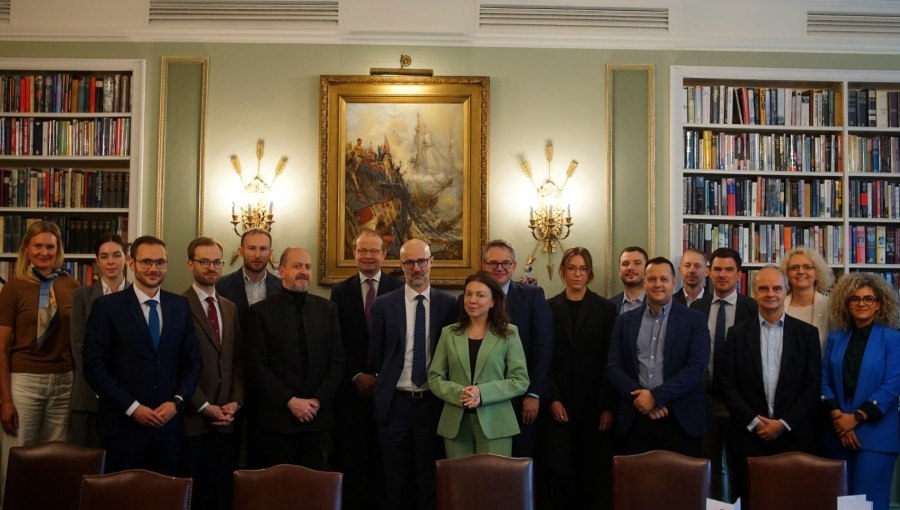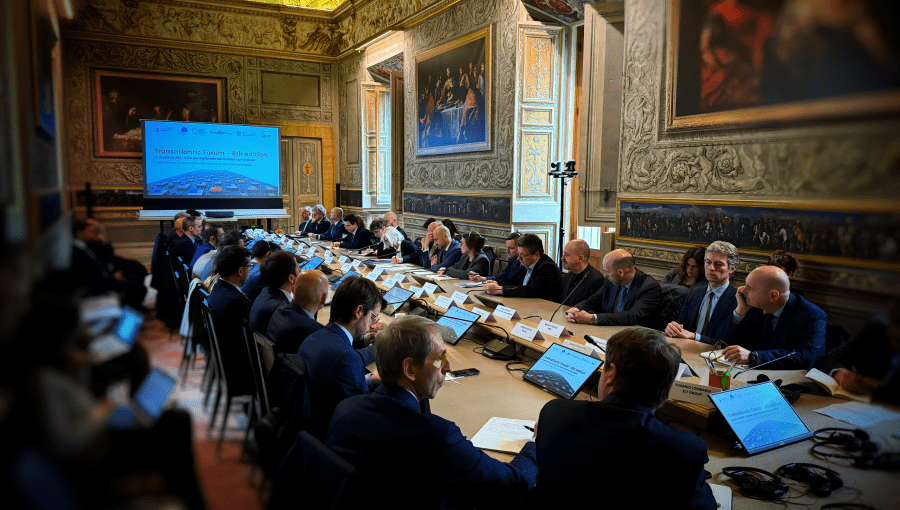Our Common AI Future: a New Book by Francesco Lapenta

Our Common AI Future by Francesco Lapenta
Francesco Lapenta, Director of the JCU Institute of Future and Innovation Studies, recently published a new book titled Our Common AI Future. A Geopolitical Analysis and Road Map for AI-Driven Sustainable Development, Science and Data Diplomacy. The book is the result of Lapenta’s Mozilla fellowship and collaboration with DataEthics.eu.
The book’s premise is that, while the future is uncertain and open, it is not arbitrary. Rather, it is the result of a complex series of competing decisions, actors, and events that began in the past, have reached a certain configuration in the present, and have the potential to shape into a variety of different possible, probable, undesirable, or desirable future scenarios. The book identifies facts, actors, and forces that have shaped the present technological and AI race, and how a certain dominant technological innovation model came to be. The book progresses toward identifying a possible alternative evolutionary and collaborative model based on key global initiatives, developing technological tools and scientific theories that could act as catalysts for a broader understanding of the shared challenges of human evolution and innovation.
The title of the book builds upon and encourages readers to engage with one of these pivotal efforts: the “Our Common Future” report, and the Brundtland’s commission report, which was published in 1987 by the World Commission on Environment and Development (WCED) and the first to give a coherent and articulated definition of Sustainable Development. Moving from these early historical premises, the book describes a roadmap to a possible future based on existing best practices and developing theories, initiatives, and tools that could underpin these global collaborative efforts and lead to a shared scientific collaborative model for AI-driven Sustainable Development.
The book promotes science, technology, and data diplomacy, as well as the underlying argument that, despite political rivalry and competitiveness, governments should cooperate on at least two fundamental tasks: 1) to establish a set of global “red lines” to prohibit the development and use of AI. in specific applications that might pose an ethical or existential threat to humanity and the planet; and 2) to create a set of scientific “green zones” for scientific diplomacy and cooperation in order to capitalize on the opportunities that the impending AI era may represent in confronting major collective challenges such as the health and climate crises, the energy crisis, and the sustainable development goals identified in the report and developed by other subsequent global initiatives.
The book identifies and describes a number of key concepts, theories, initiatives, and principles that could serve as the foundation for a shared road map for AI-driven Sustainable Development inspired by the vision, values, and path outlined in the UN “Our Common Future” report, as well as the goals outlined in the “UN 2030 Agenda for Sustainable Development.”
The book is licensed under Creative Commons (CC BY-NC 4.0) and can be downloaded for free.





